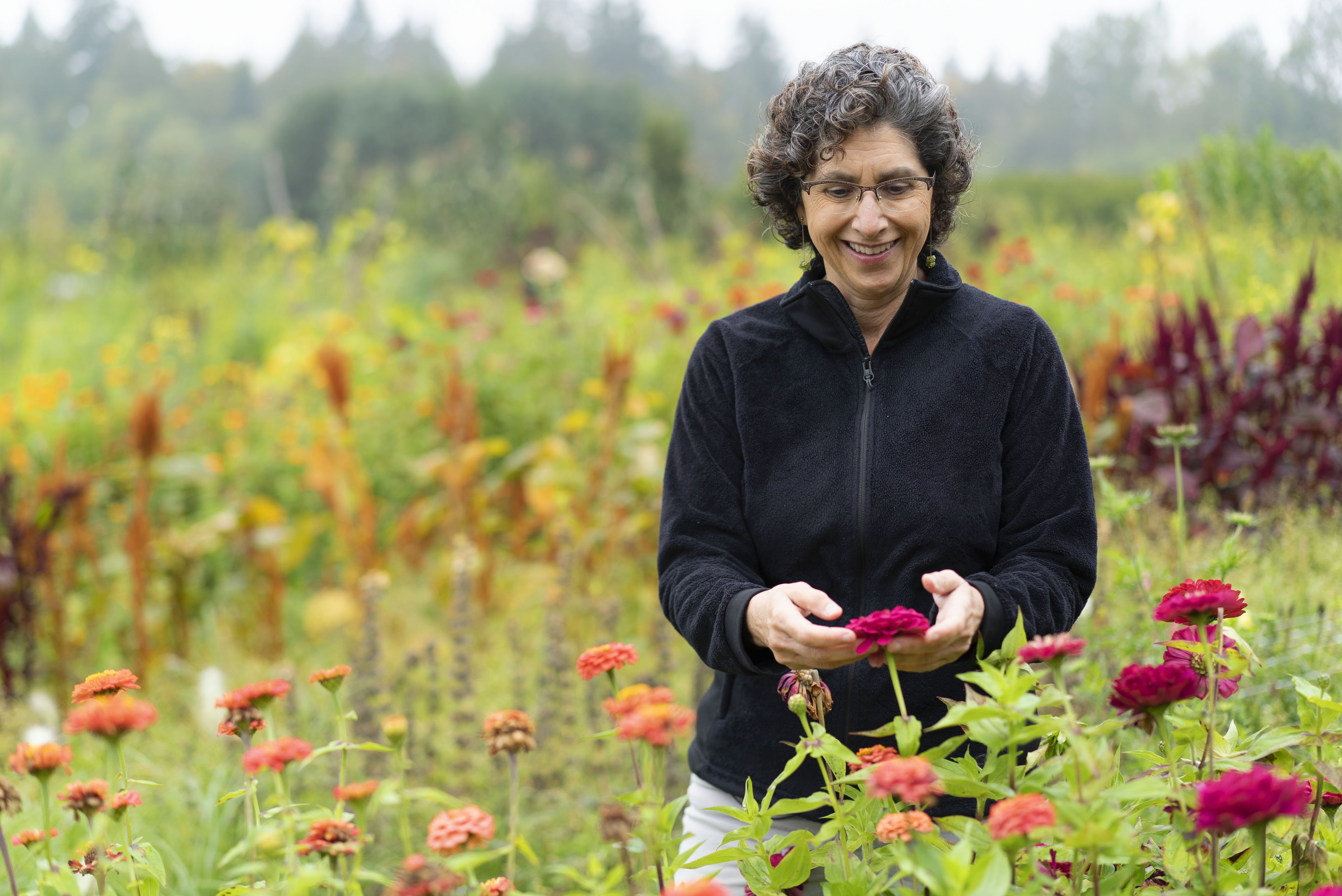UBC researcher wins 2020 Volvo Environment Prize
October 13, 2020

October 13, 2020

UBC conservation biologist Claire Kremen is this year's winner of the Volvo Environment Prize, recognizing her world-class research on how humanity can feed itself while also protecting biodiversity.
Since its inception in 1990, the Volvo Environment Prize has become one of the scientific world’s most respected environmental awards. Kremen is the fourth UBC researcher to be awarded the prize.
"Professor Kremen's work on diversified farming systems and conservation has helped us to understand how the increasingly globalized food system affects biodiversity, sustainability and equity,” according to a statement from the Prize Foundation jury. "Most importantly, her work has shown how to significantly improve this system so that we can feed ourselves while protecting biodiversity and mitigating climate change."
A key focus of Kremen’s research involves changing working lands – agriculture, forestry and ranches – to more diverse landscapes to preserve biodiversity.
"With very large-scale agriculture, we are simplifying the landscapes a lot. It makes them much less hospitable for most species," says Kremen, President’s Excellence Chair in Biodiversity with a joint appointment with the Institute for Resources, Environment and Sustainability and Zoology at University of British Columbia.
According to a recent report by the conservation group WWF, the wildlife population has fallen by more than two-thirds in less than 50 years. They recorded an average 68 percent fall in more than 20,000 species of mammals, birds, amphibians, reptiles, and fish since 1970.
Less known perhaps is the decline of insects. Kremen is also an expert on wild bees and says she's concerned about insect declines.
"Insects are the little things that run the world," says Kremen, quoting famous Harvard biologist EO Wilson.
"Insects are at the base of the food chain for many organisms. If we didn't have pollinating insects, we'd be interfering with the reproduction of about 90 percent of plant species. And, 75 percent of the crops we humans eat benefit from insect pollinators' visits. So, we really need these creatures. I f we don't have them, we're not going to have all the fruits and vegetables that are so important for our nutrition".
Reversing the trend is still possible, she says. A way to do it is by transforming the working lands to make them more diverse, by having different crops grow within the same field, planting hedgerows, and lining the fields with shrubs and trees. It would be a mixed landscape of many crops, pastures and small areas of native vegetation and forest borders along streams.
"Diversified working lands, on the other hand, can be extremely productive,” says Kremen. "Farmers could promote natural pest control by harnessing the powers of nature, thus reducing the need for pesticides. We would preserve the ability to provide clean water, to store carbon in the soils, to provide habitat for biodiversity, even to provide beautiful landscapes that people enjoy."
Before coming to UBC, Kremen held faculty appointments at Princeton University and University of California, Berkeley, where she also founded the Center for Diversified Farming Systems and the Berkeley Food Institute. Prior to those appointments, she worked for over a decade for the Wildlife Conservation Society and the Xerces Society, designing protected area networks and conducting biodiversity research in Madagascar, a biodiversity hotspot.
The Volvo Environment Prize is one of the scientific world's most respected environmental prizes. For more than 30 years, it has been awarded annually to people who have made outstanding scientific discoveries within the environment and sustainability. The award – a handmade diploma, a glass sculpture, and a cash sum of SEK 1.5 million – will be celebrated on Nov 12, 2020 at a live streaming ceremony.
We honour xwməθkwəy̓ əm (Musqueam) on whose ancestral, unceded territory UBC Vancouver is situated. UBC Science is committed to building meaningful relationships with Indigenous peoples so we can advance Reconciliation and ensure traditional ways of knowing enrich our teaching and research.
Learn more: Musqueam First Nation